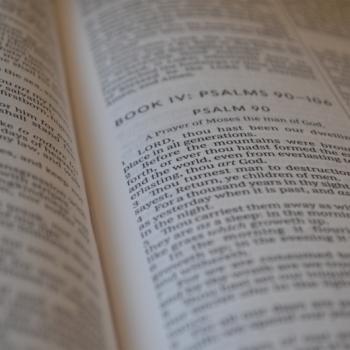In my last article, I discussed why free will and God’s foreknowledge aren’t contradictory. I pointed out that knowledge is always the result of, and not the cause of a fact. So God’s foreknowledge of an event is dependent on that event, rather than determining that event.
In this article, I’m going to discuss some objections to God’s foreknowledge and human free will, and show how this understanding of foreknowledge answers them.
First, here’s the definition of free will that I gave in that article:
Free will is the ability to make a choice oneself, rather than to be determined by someone else to make your choice. Typically, you don’t have free will unless you are actually able to choose between two live options.
Recently I had an online conversation in which someone, let’s call him, Jake, proposed a contradiction between foreknowledge and free will. Jake said that three things have to be true if foreknowledge and free will are possible:
1) X (or God’s knowledge as of day 1 of Pete’s day 2 A/B choice) has a value of either A or B on day 1 and this value is fixed and cannot change. If it is A, it will remain A. If it is B, it will remain B. This follows the assertion that God has infallible knowledge of future events.2) Y (or Pete’s day 2 A/B choice) receives its value on day 2. Once Y receives its value, it becomes locked. Prior to receiving its value, it could potentially become A or B, as Pete freely chooses A or B. This follows the assertion that Pete has free will or can freely make choices.3) X is equal to Y. This follows the assertion that whatever Pete chooses is precisely the same as what God knew he would choose.
But, Jake objected, these points can’t all be true at the same time. If God’s foreknowledge of Pete’s choice can’t change, then Pete has only one option for what to choose. Pete has to choose what God foreknew. Thus, Pete’s decision is determined. And if Pete can freely choose between two options, then God’s foreknowledge could end up being wrong, in which case it isn’t really foreknowledge.
However, this argument simply misunderstands what foreknowledge is. If we correctly understand foreknowledge, then all three of Jake’s points can be correct.
As I pointed out in the last article, God’s foreknowledge exists before Pete’s choice in time. However, God’s foreknowledge is, after all, knowledge. Therefore, it exists after Pete’s choice in a different way. Pete’s choice is logically prior to God’s foreknowledge, and God’s foreknowledge is temporally prior to Pete’s choice.
So that means that Pete’s choice is not decided until day 2. Until then, he could choose A or B. However, Pete’s actual choice is the fact that God’s foreknowledge is based on. And God’s foreknowledge can exist on day 1, even before Pete’s choice is decided.
The time machine
As in the last article, let’s think about it in terms of a time machine. Suppose you were to go back in time to 1776 and would tell people that America was going to win the War of Independence.
Your knowledge of America’s victory is logically posterior to America’s victory. You wouldn’t know that America was going to win without the fact of America’s victory. However, your knowledge is temporally prior to America’s victory, because the knowledge of it has traveled back in time with you.
However, America’s victory is still contingent, because it could have happened differently. It could have been that America lost the war. However, would this mean that you’d be wrong when 1781 rolled around? No. America is going to win!
But what it does mean is that, if Britain would have won, you would have carried that knowledge back in time with you rather than the knowledge that America won. If Britain were going to win, you would know that instead of what you know now!
Similarly, God’s foreknows that Pete will freely choose A. Then when the time comes, Peter chooses A. However, if Peter actually were going to choose B, that’s what God would foreknow. Pete’s choice would, as it were, go back in time and reveal to God what is going to happen.
So foreknowledge is knowledge that has traveled back in time, but is dependent on the future fact. If the future fact were going to be different, God’s foreknowledge would have been different. So foreknowledge and free will are not logically incompatible.












